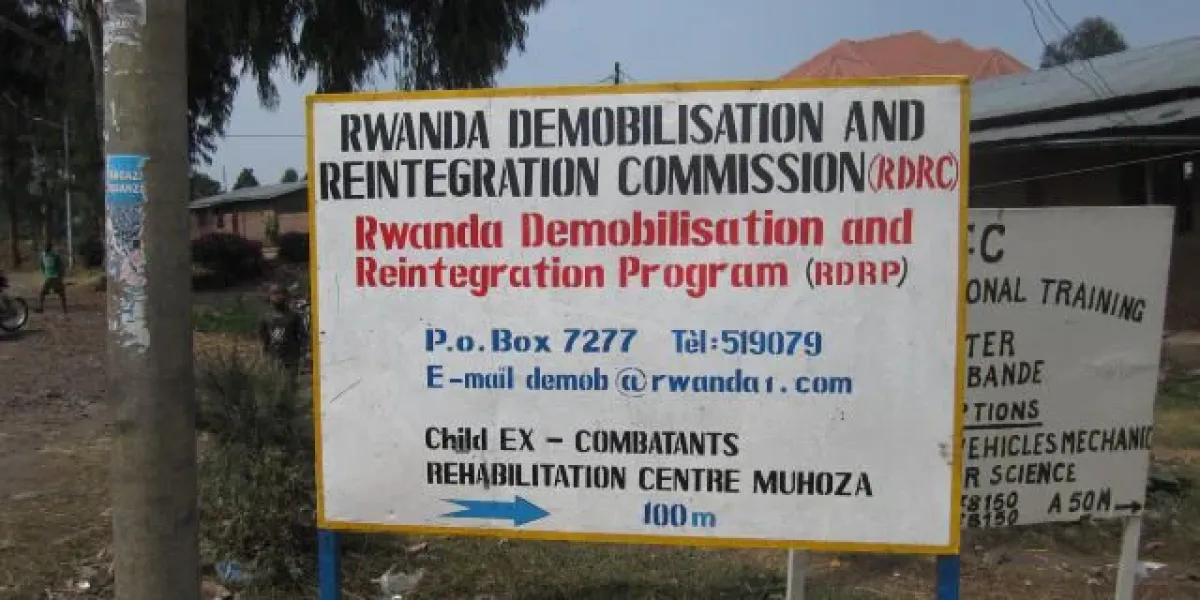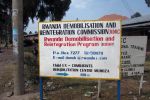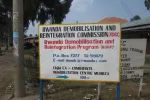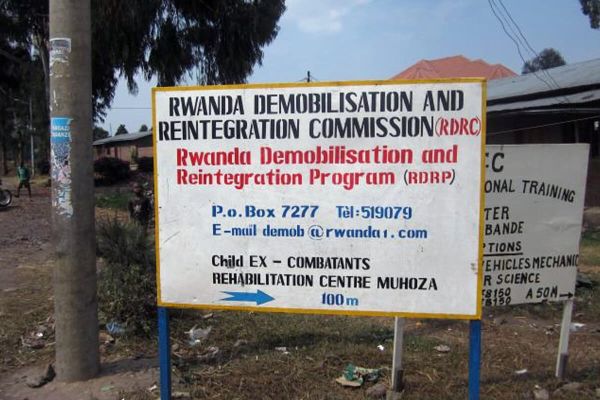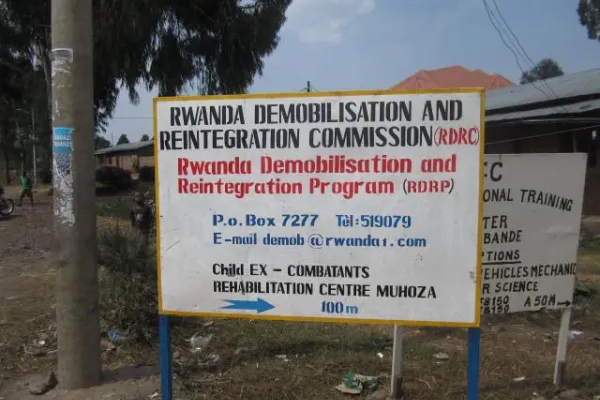After much hassling over permission I got permission to visit camp Muhoza and do interviews. So yesterday me and my interpreter went to Musanze, in the north-west of Rwanda, to visit the demobilization camp for former child combatants. In the current conflict in the Democratic Republic of Congo, it seems that all parties (except for the government army, although I am not sure about that, and of course except for the UN force) make use of child soldiers. When sometimes some of these soldiers decide to flee, they either cross jthe border to Rwanda or Uganda, or they try to reach a UN camp. Fleeing is a risky business. The ones who get caught while trying to break out are mostly killed. If they do reach the border or the UN camp, tired of fighting in the jungle, their future is still unsure. If they are Rwandese, they are collected in a Rwandan demobilization camp. This means that for a period varying from 4 months to 1 year, they get food, schooling and a bed. Here they try to prepare these ex-combatants for the return into Rwandan society, for example by teaching them Rwandan history and by giving them counselling.
We were received very friendly and welcoming in this camp – they even picked us up from the bus station and we were asked to sign a guestbook (last entry: October 2012). In one of the classrooms we did four interviews. The children seem to be well taken care of in the camps. There are 46 boys currently staying in the camp. They have games, a volleyball net, one psychologist. Officially, their ages vary from 15-19, but the problem is that after years in the jungle and no birthday parties, you do not know your age. One of the boys that we interviewed was recruited as a child soldier when he was 8 years old. He said he was now 17 and almost mature, but I would say he was 14 at the most. Most of these children (if not all) are badly traumatized. For them their biggest current problem, except for psychological struggle, is the fact that in the jungle they have lacked education for so long. In the camp they get some schooling, but they said, how are we going to make a living without education? When they get out of the camp they get RWF 100.000 (which is about €120). They are advised to group together, with five or six of their fellow camp-members, to rent a place and maybe start a business.They cannot afford to go to school.
On the one hand, it is very impressive of the Rwandan government that they take care of these kids so well, even after they have usually fought against the best interests of Rwanda (for example for the FDLR, which is the group that in 1994 were the aggressors during the genocide, killing about a million people. After the genocide they fled Rwanda, into the DRC jungle, where they are still active and still cherishing the idea of returning to Rwanda to finish what they started). On the other hand, what will come of these children after they leave the camp? Will society accept them? Will their family take them back lovingly (provided family members are still alive and can be found)? Will they ever be able to make a living?
